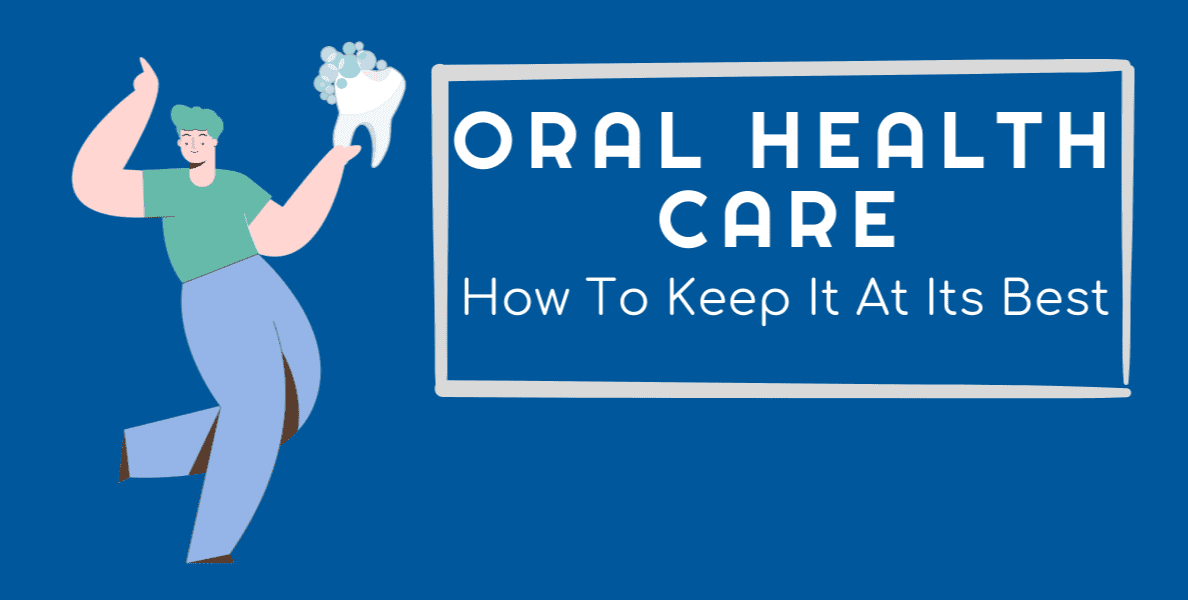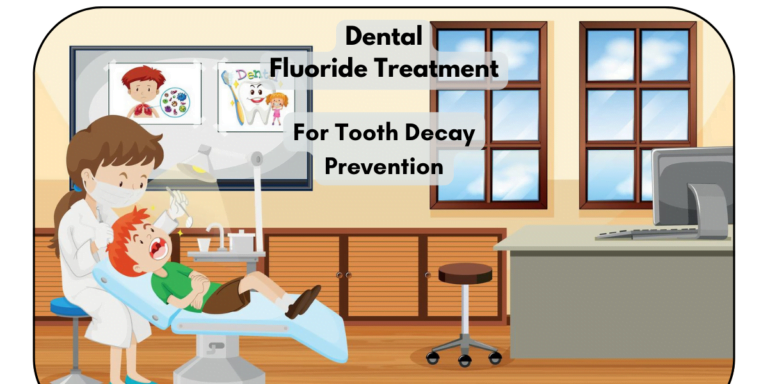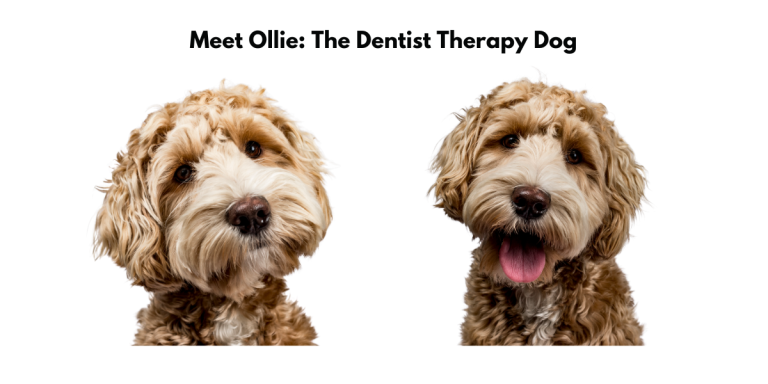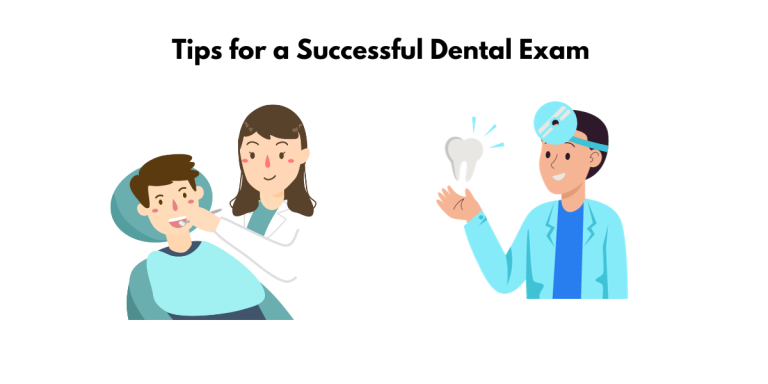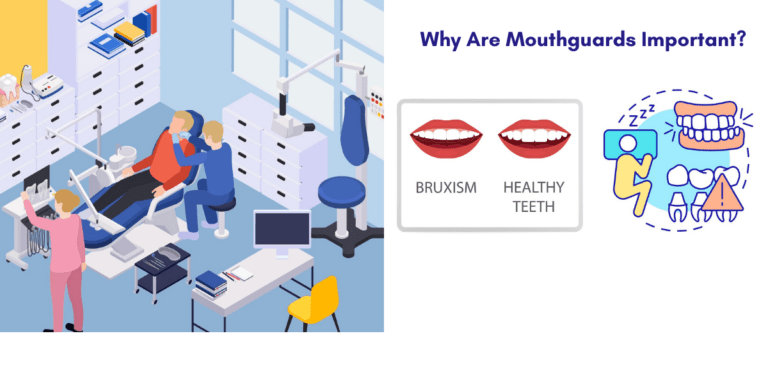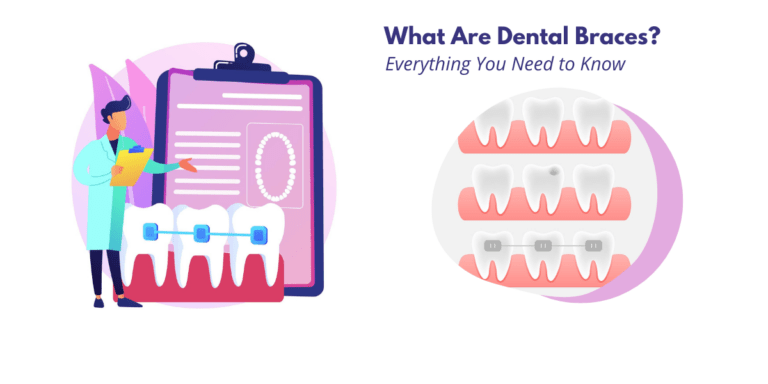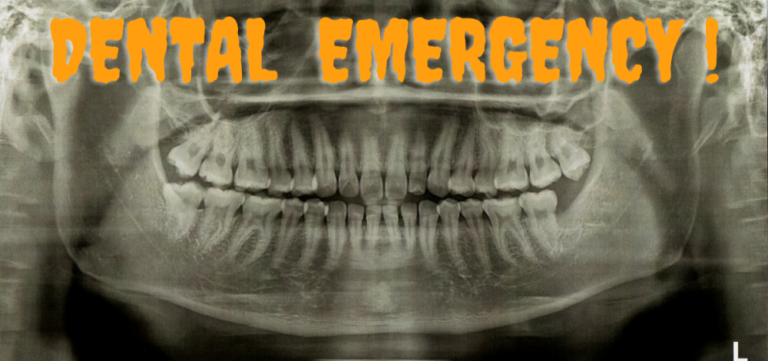Helpful and Effective Dental Hygiene Tips to Care for Your Teeth and Gums
Dental Hygiene Tips
Dental hygiene is the practice of maintaining oral health. It involves personal care, including brushing teeth with toothpaste, flossing, and professional cleaning with an ultrasonic scaler.
Brush your teeth twice a day with toothpaste. Floss once in the morning when you brush your teeth for 30 seconds. Brush again before bedtime for 3 minutes to remove plaque that forms daily. For people with braces, use an interdental brush or water pick once in the morning and evening to remove food and plaque.
Replace your toothbrush every three months or sooner if the bristles are frayed. Brush gently to avoid damage to your gums, but don’t brush too hard.
These are only some of the basic tasks we must do religiously to maintain our dental hygiene at its best. Keep reading to learn more.
What is dental hygiene?
Dental hygiene is the process of keeping your teeth and gums healthy. It’s important to start paying attention to your teeth and gums; you can prevent diseases such as gum disease, oral cancer, and terrifyingly horrible breath.
In fairness to some people, problems can cause care wrongly: it’s not uncommon for people with good dental hygiene practices to be told that they need professional help when in reality, their bad habits are causing them more harm than good.
Dental hygiene includes cleaning the teeth, removing plaque, taking care of gums, applying fluoride treatments to prevent tooth decay, and other practices.
Why is oral hygiene important?
Dental hygiene is important because it prevents tooth decay, cavities, gum disease, and other dental problems. It also keeps your teeth healthy and strong. Proper brushing techniques are necessary to maintain your teeth, gums, and mouthparts. Other essentials include flossing every day for up to two minutes.
Dental hygiene is essential to maintaining your health. It’s important because gum disease can lead to more serious health problems, including heart attack and stroke.

How to improve your dental health?
To ensure your dental hygiene is as effective as possible, consult a professional dentist. Those who work at the practice should be able to give you advice on how to care for teeth and gums to maintain healthy dental hygiene.
Follow these tips to help maintain your dental hygiene:
Brush regularly and properly
Since childhood, you’ve been told to brush your teeth twice a day, and the American Dental Association recommends using fluoride toothpaste. Fluoride is best for fighting cavities, but not all kinds of toothpaste have it. However, it would be best if you still used good-quality toothpaste with regular brushing and flossing once or twice a week.
Brush teeth and whole mouth in the morning and night. Gentle, circular motions on the surface of your teeth will help remove plaque buildup that is unavoidable when brushing.
Brushing your teeth is a vital part of dental hygiene. By brushing the front and back edges and all surfaces, you’re also able to fight bad breath. Make sure that you brush properly with a soft-bristled toothbrush for best results.
It is important to visit a dentist regularly for proper protection. Some dental clinics offer affordable and flexible dental plans and helpful services such as free consultations and emergency appointments.
Brushing your teeth is a habit that needs maintenance. The frequency of brushing should be regular, and the toothpaste used should be non-abrasive. Besides, you can get a dental hygiene check-up from time to time if there are any irregularities or dental problems present that need attention right away.
Don’t neglect your tongue
Some people believe that tongue-biting is bad for your dental hygiene. Some studies have shown this to be true, but more recent studies have proven it false. Unfortunately, the truth is that there are no studies on this matter, so it can’t be confirmed either way.
Mouthwash with fluoride can help maintain good dental hygiene. When brushing your teeth, don’t neglect the tongue. It is important to brush your tongue because it can harbor bacteria and bad breath.
Use a fluoride toothpaste
Use fluoride toothpaste and mouthwash to help support the minerals found in enamel. Fluoride helps prevent cavities, but it is important to use this product for a long period.
To prevent cavities, people should use fluoride toothpaste. If the water in their area is not fluoridated, they can contact their local government and ask whether the community can add this component.
People who live in areas with high fluoride levels that are not removed by reverse osmosis water filters may need to use a toothpaste containing it. However, many bottled glasses of water do not contain any added fluoride, and these people will have to drink tap water if they want this benefit.
Although bottled water brands often do not contain fluoride, if your well water does have high levels, you can use a toothpaste with fluoride.
Consider mouthwash
Mouthwash is a great way to enhance your dental hygiene and care for your teeth and gums.
Mouthwash can help reduce the amount of acid in your mouth, clean hard-to-brush areas on and around gums, and re-mineralize teeth. It would help if you used it according to instructions on the bottle or as directed by a dentist.
Adults and children need to use mouthwash. Many brands are available, such as Listerine, Scope, or Glycerin-Free Mouthwashes. You can also purchase prescription mouthwashes online through a store like Amazon if you need the product immediately.
Floss daily
Flossing is the process of cleaning between your teeth with dental floss. It removes plaque and food particles that accumulate on teeth surfaces. Flossing is important for preventing plaque buildup and gingivitis. Dentists recommend flossing daily to remove food particles that have been stuck between your teeth.
Flossing is recommended for dental hygiene, but many people still dread the chore. However, it takes only a few minutes to complete, and it’s easy enough that even children can do it.
Increase calcium intake
Calcium deficiency can cause a host of dental problems, including sensitivity and tooth decay. Calcium-rich foods include dairy products, leafy greens, sardines, kale, broccoli, and oranges.
Calcium supplements are great for those who need extra help increasing their calcium intake. Milk and dairy products contain large amounts of natural, absorbable calcium.
First, lactose-intolerant and vegans should not give up on calcium because many dairy substitute products still have a significant amount. And second, coffee can stain your teeth, so you should drink milk or water to clean them off before brushing your teeth.
Limit tobacco
Limit tobacco and coffee to help prevent your teeth from getting stained. If you enjoy both, use a straw or juice box lid instead of a paper napkin for the best protection.
As part of a dental hygiene and wellness plan, cutting tobacco is very important. Other ways to cut back on coffee are drinking herbal tea or black tea instead.
People should avoid consuming sugar to prevent cavities. The WHO recommends people limit their sugar intake to below 10% of daily calories, which is also a goal of the American Heart Association and Centers for Disease Control and Prevention.
Like french fries and potato chips, Starchy foods are notorious for causing teeth decay. However, replacing starchy food with fruits, vegetables, and dairy products without added sugar can help prevent cavities.

Limit coffee intake
Coffee has its benefits, but it can also negatively affect dental hygiene. It is ideal for cutting out coffee completely, but this isn’t always possible. Coffee intake can be harmful to your dental hygiene and overall health, so you must limit the amount of coffee you drink. In addition, the carbonation found in sodas, beers, and sparkling waters erodes the surface of your teeth.
If you are looking to limit your coffee intake, carbonated beverages can lead to tooth erosion. Carbonation causes the enamel of teeth near the surface of your teeth to be worn down more quickly than on other parts of their surfaces. Limit your sugar intake to minimize the risk of cavities and tooth erosion. Sugary foods are bad for teeth as they cause an imbalance in pH, which leads to decay.
Limit your coffee intake to below 10 percent of your daily calories. If you drink a lot of sugar in food, it can cause tooth decay. If you’re trying to limit your coffee intake, you must eat plenty of fiber-rich fruits and vegetables. It is also wise not to add any sugar into dairy products or drinks because the added sugar can be harmful to dental hygiene in general.
Limit sugary and acidic foods
Without proper dental hygiene habits, we can develop gingivitis and periodontitis. Fluoride is used as a preventive measure to prevent cavities. However, a toothbrush cannot reach the areas that fluoride cleans, so limiting sugary and acidic foods is necessary.To prevent plaque and tartar buildup, you want to floss at least once a day. As the bacteria feast on the sugar in your mouth, it produces acids that will wear away enamel. Limit sugary and acidic foods. There are some guidelines for brushing teeth that can help you improve your oral health.
Limit sugary and acidic foods to reduce the risk for dental issues, such as cavities. If you have to cancel an appointment with your dentist, schedule a new one as soon as possible. Although the bacteria in your mouth is not harmful, it can cause tooth decay. A solution to this problem would be drinking water. Limit sugary and acidic foods because smoking increases the risk of oral cancer while drinking water benefits teeth.
Anytime you eat, drink water. Drinking plenty of water will wash away any leftover food that may attract cavity-causing bacteria and prevent tooth decay from developing in the long run. Generally speaking, it’s best to have a small head on your Moka pot because smaller heads are easy for people with limited mobility to reach into their mouths comfortably.
Cut out carbonated beverages
Dr. Gerber recommends that people not drink carbonated beverages as they can erode the surface of their teeth. Carbonation is also bad for gums, so you should cut them out or severely limit their intake to properly care for your teeth and gums.
Cut out carbonated beverages, such as pop and coke. Regular or occasional tobacco use stains teeth and eats away at them. Cut out carbonated beverages to prevent the buildup of plaque and tobacco use on your teeth.
Cut out carbonated beverages, such as sodas and energy drinks to improve your health. Drinking these products can lead to weight gain, diabetes mellitus type II, or metabolic syndrome x2 if you are not careful with the amount of caffeine intake.
Eat crunchy fruits and vegetables
The dental team recommends that people eat crunchy fruits and vegetables to help scrub tooth surfaces, wash away the acids on teeth, and stimulate saliva. When eating, it is important to eat crunchy fruits and vegetables because they help teeth. Eating such foods can be inconvenient, though, as ready-to-eat food has less nutritional value than produce that hasn’t been processed or cooked yet.
The food with the most sugar is fruit. You should eat fruits and vegetables that are crisp, not soft or mushy. Soft-fleshed veggies like potatoes, corn on the cob, peas, and carrots contain a lot of starch that can lead to cavities if eaten too often. Therefore, eating crunchy fruits and vegetables is important as part of a balanced diet. However, sugars should only make up 10% of daily caloric intake, and pieces of bread, crackers, chips, and pasta can cause tooth decay.
When it comes to food, crunchy fruits and vegetables are recommended because they have a lower GI index. Unfortunately, they also break down into simple sugars used by the bacteria in your mouth, causing tooth decay.
Have a well-balanced diet
Consume a well-balanced diet that includes whole fruits and vegetables. Whole fruits and vegetables are better alternatives to concentrate juices, as they provide nutrients that can help maintain your teeth and gums.
A well-balanced diet and regular exercise routine are recommended, as it helps your body stay in better balance.
Drink more water
Drink more water to stay healthy and help your teeth and gums. Drinking water after every meal is a good rule of thumb. When choosing drinks, consider the acidity level. It is important to drink water instead of pop or other sugary beverages that wreak havoc on teeth enamel and cause cavities. Although it may seem like a good idea to drink more water, sugar-sweetened beverages are the number one source of added sugars in most people’s diets. Drinking sugary drinks can lead to cavities and other health risks. Having a dry mouth can also promote bad breath.
A recent ADA recommendation states that drinking water or unsweetened tea throughout the day and only consuming sugar-sweetened drinks in small volumes at mealtimes is a healthy option. In addition, Colgate Reaches Children In Need Across The Globe With A Bright Smile provides dental hygiene products to children who have been unable to afford them otherwise.
Coca-Cola has joined the American Dental Association in committing to provide oral health education. With this commitment, Coca-Cola encourages people to drink more water and brush their teeth at least twice a day.
See your dentist at least twice a year
Dental team members recommend that people see their dentist twice a year. It is important to maintain dental hygiene and avoid cavities by brushing and flossing regularly, eating healthy foods, and visiting the dentist on time for regular check-ups. It is estimated that a person should see their dentist twice yearly for routine check-ups. In addition, fluoridated water and toothpaste can help maintain healthy teeth, which leads to fewer cavities.
Dental plaque is an accumulation of bacteria and other substances on the teeth. The best way to remove dental plaque is by using the flossing method, which requires a certain amount of diligence. However, if you only visit your dentist once every year, there’s still time for them to clean up your oral health before it gets out of control bad.
People should see their dentist at least twice a year to manage blood sugar levels. In addition, those with gum disease may also have lower blood sugar levels as the treatment helps treat some of the root causes of diabetes. Regular check-ups are important because they can detect any changes in your health. For example, if you notice sudden changes in taste and smell, it is time for a follow-up visit with the doctor or dentist.
When brushing your teeth, see a dentist twice a year for check-ups. Older individuals may not be able to perform these activities independently and could have changed tastes due to medications or health conditions such as diabetes.

Effective toothbrushing tips
Toothbrushing is an important part of dental hygiene, and there are many effective tips for doing it well. After use, a toothbrush should be cleaned by rinsing with water and shaking off the excess water. The bristles of a toothbrush should be replaced every 3-4 months, but less frequently when they are in an area that is not used often.
Children should be supervised while brushing their teeth. A toothbrush can only clean so much plaque off of teeth at one time, so it is important to brush for two minutes twice a day and brush the tongue.
Wait before you brush
Wait at least two minutes before brushing your teeth to minimize the risk of enamel damage. If you are not ready to brush yet, eat or drink something acidic that will temporarily soften the enamel on your teeth. After brushing, make sure to follow up with a second round of toothbrushing with fluoride toothpaste.
Before brushing, it is important to wait and drink a glass of water. It will help remove the acidity from your mouth that causes tooth wear. The more important issue is to floss during the day because this can flush bacteria and debris out of your teeth before they get too deep in between them. Then it would be best if you rinsed with water afterwards to avoid re-introducing new bacteria into your mouth by drinking something else through gaps on its surface.
Switch to a soft-bristled brush
Some people recommend using a soft-bristled brush to avoid wearing down the bristles over time. If you are worried about damaging your teeth or gums, consider replacing your toothbrush now if it is a medium or firm bristle. Brushing in a gentle circular motion will also help prevent your teeth and gums damage.
The brush head should be small enough to clean around each tooth in your smile. The average adult is comfortable with half-inch or one-inch bristles, and the entire head of the toothbrush should not exceed two inches long.
Switching to a soft-bristled brush is the best option for patients with a lot of plaque and tartar buildup. The toothbrush head should be small enough that you can clean around each tooth in your smile. Molars: In general, most adult patients are comfortable cleaning around these teeth.
Start by brushing in the back
Brushing the back of your molars is important for preventing gum disease and cavities. Brushing teeth at a 45-degree angle, with short strokes, and on all surfaces will help to keep your mouth healthy. For the front teeth, brush gently up and down with one hand while using the other to guide between the thumb and fingers.
Don’t brush too often
Brushing your teeth too often can damage the enamel on your teeth, and it is recommended that you brush after every meal. Twice daily brushing should be sufficient for effective dental hygiene.
Electric toothbrushes are great for people trying to reduce the number of times they brush their teeth. They can be more effective in removing plaque and calcium buildup than manual brushing since electric brushes do not require back-and-forth motion as a regular toothbrush does. Electric brushes also have timers that help keep you accountable and stop after 2 minutes if it’s been used too much!
- Can Small Cavities Heal? Tooth Decay Myths & Facts - November 26, 2024
- Do Whitening Strips Work: Everything you need to know before purchasing a home teeth whitening strip - November 28, 2022
- Top Factors Causing Bad Breath: What causes foul breath and how to prevent it? - October 27, 2022

